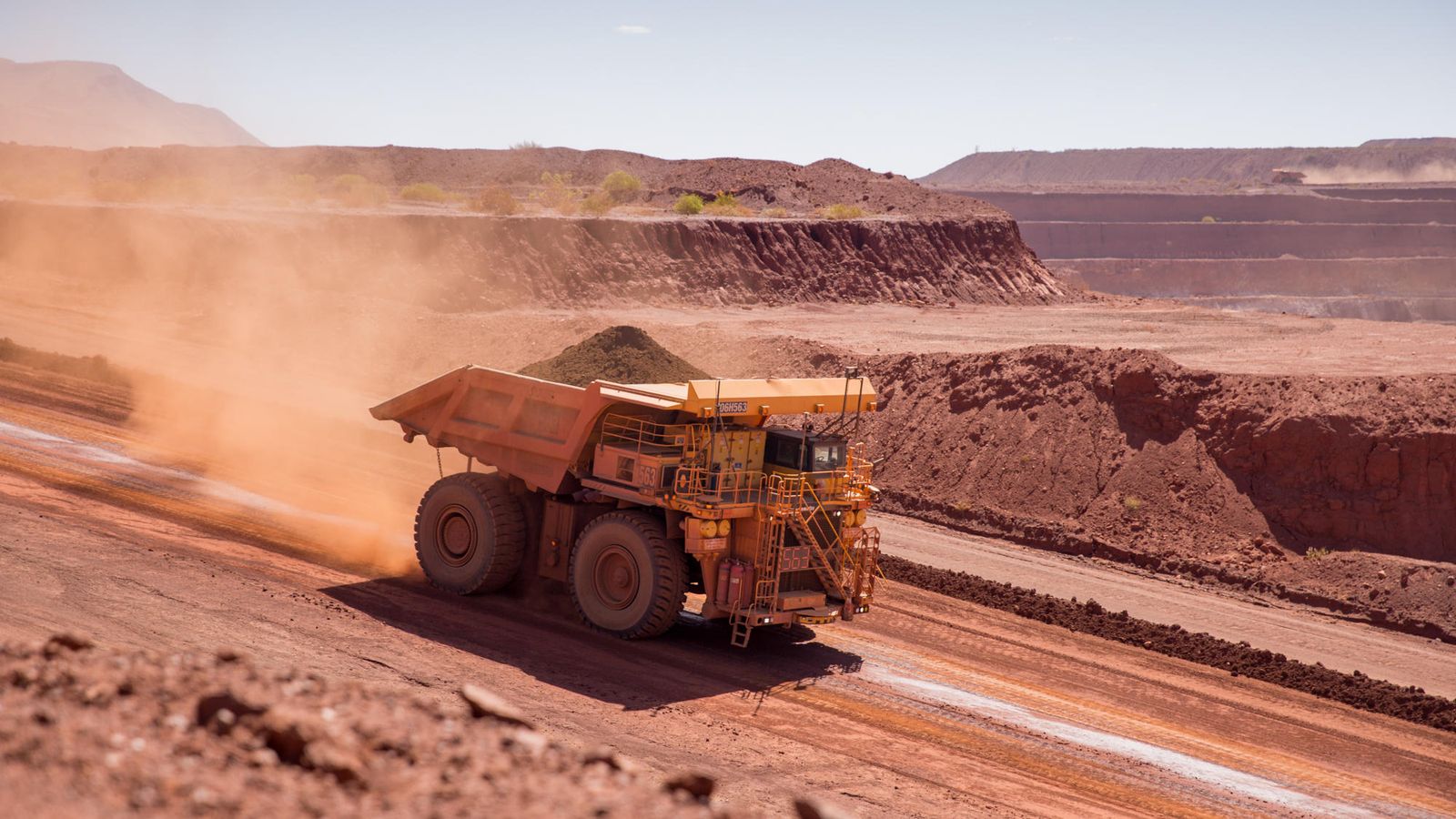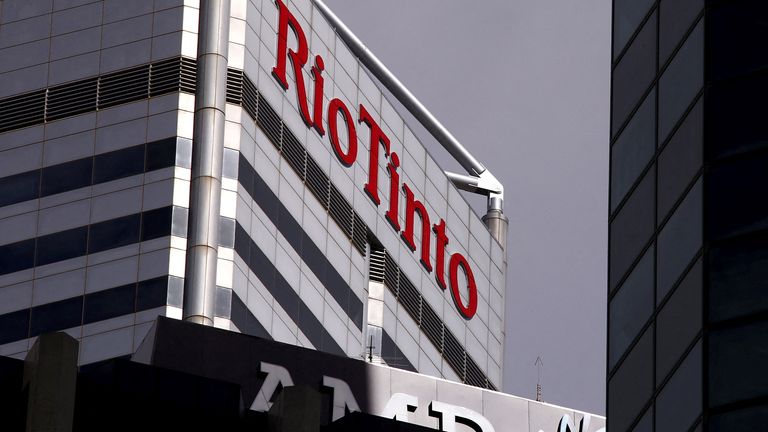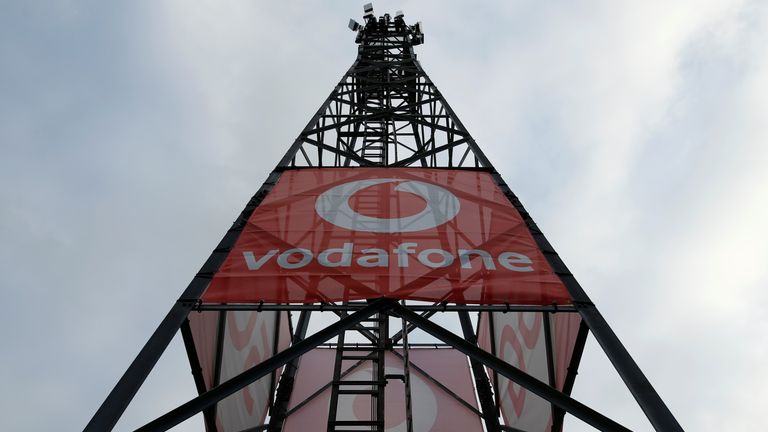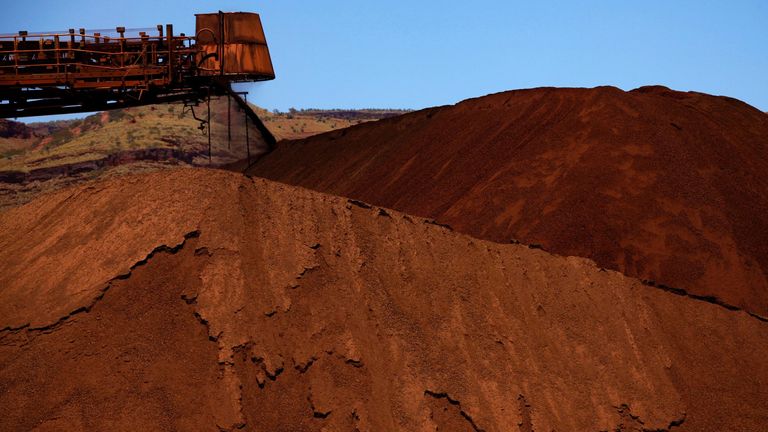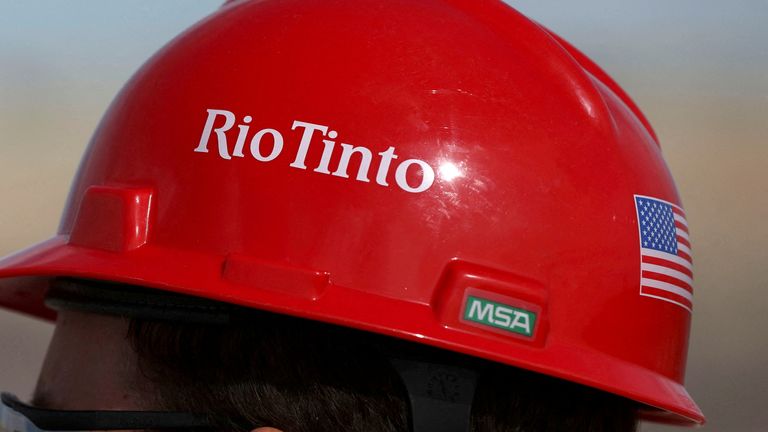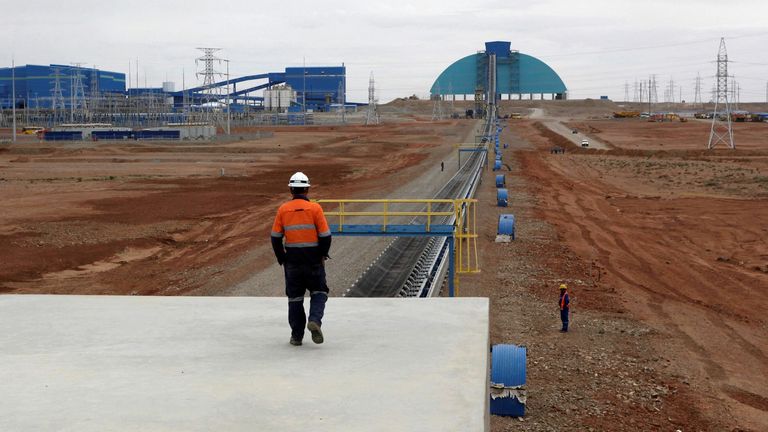Mining giant Rio Tinto reveals second largest payout in FTSE 100 history
While tech stocks were among the assets that saw their price hit a record high during 2021, so too were many commodities, among them copper and iron ore.
That was good news for mining giants such as Rio Tinto – and today the company revealed just how good.
The 149-year old business reported underlying earnings of $21.4bn (£15.8bn) for 2021 – up 72% on 2020.
At a pre-tax level, profits doubled to $30.8bn (£22.7bn), while Rio saw its broader measure of profitability – earnings before interest, taxes, depreciation and amortisation (EBITDA) – rise by 58% to $23.9bn (£17.6bn).
This helped the Anglo-Australian titan generate some $25bn (£18.4bn) in cash – and a big chunk of that is going to be handed to shareholders.
Rio announced a special dividend which, along with the final dividend and the interim dividend already declared, takes the total pay-out to investors totalling some $16.8bn (£12.4bn).
That is not only the highest dividend in Rio’s history.
It is the second highest on record for a FTSE 100 company and is topped only by the thumping one-off £18bn doled out by Vodafone when, in 2014, it returned to shareholders some of the proceeds of the $130bn sale of its stake in the US mobile operator Verizon Wireless.
To put the size of the dividend pay-out into context, it is roughly equal to the annual economic output of Albania.
Jakob Strausholm, chief executive, said Rio was “firing on all cylinders” in terms of its financial performance and dismissed suggestions that the company was simply benefitting from the hike in metals prices.
He said: “Compare today’s results with our performance during a similar period of strong demand and high commodity prices a decade ago.
“In 2021, we converted a far higher proportion of strong commodity prices into earnings and subsequently, because of our strict capital allocation, we converted the earnings into far higher free cash flow.”
Underpinning those results were some remarkable numbers concerning individual commodities.
Iron ore, for example, saw its price rise by 48% during the year as Chinese steel production reached its second highest annual total in history.
Demand from the packaging, construction and transport sectors drove aluminium prices up 46%.
And copper, the world’s most important industrial metal due to its wide range of uses, rose by 50% during the year.
The company also benefited from an improved performance in its minerals division, which has just acquired Rincon, a lithium project in Argentina.
As for this year, Rio is expecting higher production costs this year in its Australian iron ore operations, while overall it expects to raise capital expenditure to $8bn (£5.9bn) this year, up from $7.4bn (£5.5bn).
This will rise to $9-10bn (£6.6-£7.4bn) in 2023 and 2024.
Much of that will be deployed on decarbonising the company’s operations – on which it expects to spend $7.5bn (£5.5bn) between now and the end of the decade – with a key priority converting the energy supply at its iron ore operations in the Pilbara, in western Australia, from gas to renewables such as wind and solar.
This alone could abate one million tonnes of CO2 from Rio’s operations in the Pilbara.
Andrew Cunningham, chief financial officer, said other examples including installing heat recovery equipment at the company’s Queensland Alumina refinery could halve the steam required for heating.
Mr Stausholm had a tricky balancing act to perform today.
While the results are indisputably stunning, Rio was presenting them on the back of a torrid 18 months, during which it was widely criticised for the destruction, in May 2020, of 46,000-year old Aboriginal rock shelters at Juukan Gorge in western Australia.
The outcry which followed saw a rare shareholder revolt in which 61% of votes cast at Rio’s annual general meeting opposed its executive pay package and which also cost a number of executives their jobs, including Jean-Sebastien Jacques, Mr Strausholm’s predecessor.
Mr Strausholm, who began his presentation to analysts and investors today by paying his respect to all Aboriginal peoples, said Rio was presenting its results as a more “humble” organisation.
He added: “When I became CEO I also committed to improve our culture.
“This goes well beyond operational safety – it’s about how we care for our people, how we become a less hierarchical and more humane organisation and how we unleash the potential of each individual.”
As part of that, he commissioned In March last year a report into the company’s culture, covering the last five years.
The report, published at the start of the month, shocked many readers.
It revealed, among other things, that 21 women had been raped or sexually assaulted at Rio’s mines during the period and that almost half of the 10,000 Rio employees questioned claimed they had been bullied in what the report described was a “hyper masculine” culture.
Mr Strausholm said the report was “disturbing and confronting” but said that, in order to improve, the company had needed to identify the extent of its problems.
He promised to implement the report’s recommendations in full.
Mr Strausholm went on: “We have addressed how we engage with stakeholders.
“We had become too transactional, relying too much on agreements at the expense of developing proper, mutually-beneficial relationships.
“I’m determined that Rio becomes a more inclusive and diverse place to work where people…feel empowered to challenge decisions and speak up freely if something doesn’t feel right.”
He said the company was trying to recruit more indigenous leaders in its Australian operations and was spending $50m (£36.9m) to that end.
Today’s results, while undeniably impressive, also carried with them echoes of previous years when Rio threw off prodigious amounts of cash but left some investors wondering whether a company of its size – at £94bn, it is the FTSE 100’s fifth largest company – could carry on growing meaningfully.
Mr Strausholm observed that, given its size, Rio was never going to be a “high growth company” but that it was still worth trying to achieve “modest growth”.
That means building the company’s portfolio of assets to equip it for the next decade with properties like Rincon and the vast Oyo Tolgoi copper and gold mine in Mongolia.
If Mr Strausholm steps up spending in that direction then, along with the expense involved in decarbonisation, the dividend payment announced today might remain a record for some time to come.
For all the latest business News Click Here

